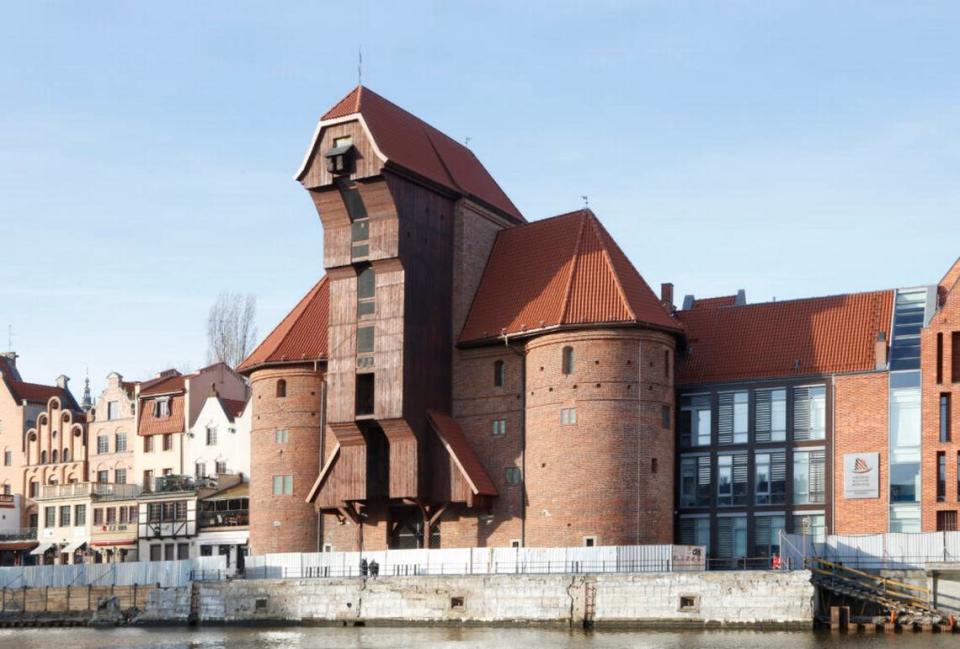Medieval token of love — with a familiar phrase — unearthed in Poland, photos show
Roses are red.
Violets are blue.
And this old token from Poland
may seem familiar to you.
Archaeologists were renovating a roughly 500-year-old crane at a port in Gdańsk when they uncovered a small silvery artifact, the National Maritime Museum in Gdańsk said in a Feb. 13 news release.
The tin artifact was shaped like a turtle dove perched on a ribbon, the museum said. The ribbon had a romantic phrase written in Latin: AMOR VINCIT OMNIA, which translates to “love conquers all.”
Archaeologists identified the artifact as a love token from medieval times.
The centuries-old token had two handles on the back, the museum said. Although now gone, the fragments indicate the dove would have been worn like a pendant or attached to clothes.

Uncover more archaeological finds
What are we learning about the past? Here are three of our most eye-catching archaeology stories from the past week.
→ Mysterious ruins found hidden in courtyard of 500-year-old castle in Norway. See them
→ Viking ruins hid beneath farmland for at least 900 years. Now, experts have found them
→'Incredibly rare' ancient Roman bed uncovered in London. See the 'extraordinary' find
These types of bird tokens were popular in Gdańsk between the 14th and 15th centuries, the museum said. Medieval dove plaques have been found in the Netherlands and United Kingdom.
Similar to modern times, turtle doves were used as medieval symbols of love and loyalty because the birds typically form lifelong pairs, the museum said.
Archaeologists uncovered the medieval token while working on the Gdańsk Crane. This wooden crane was built in the 15th century and is the oldest of its kind in Europe.
A photo shared by the museum in a Jan. 30 news release shows the restored crane.
The museum said the token will be added to the exhibition inside the crane when it reopens.
Gdańsk is along the coast of the Baltic Sea and about 170 miles northwest of Warsaw.
Google Translate was used to translate the news releases and website of the National Maritime Museum in Gdańsk.
3,300-year-old tomb — damaged by cattle — is open in Egypt. See the treasures inside
Ancient chocolate factory — built in 600-year-old building — discovered in Spain
‘Unusual’ stones on seafloor turn out to be ‘thrilling’ 11,000-year-old trap in Germany

